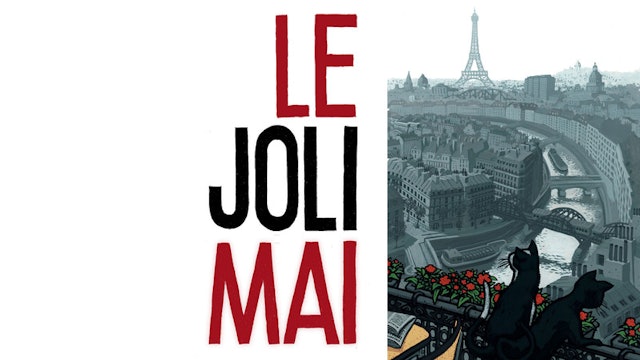Le Joli Mai (Chris Marker, Pierre Lhomme)
Filmed just after the March 1962 ceasefire between France and Algeria, LE JOLI MAI documents Paris during a turning point in French history: the first time since 1939 that France was not involved in any war.
Part I, "A Prayer from the Eiffel Tower," documents personal attitudes and feelings around Paris. A salesman feels free only when he is driving his car, and then only if there is not too much traffic. A working-class mother of eight has just gotten the larger apartment that she had been wanting for years. The space capsule of American astronaut John Glenn is examined by a group of admiring children.
Part II, "The Return of Fantomas," is an investigation of the political and social life of the city. Marker and Lhomme alternate between public events and private discussions: the former focusing on the Algerian situation, such as a funeral for people killed in Paris street demonstrations after the Algerian settlement. Meanwhile, the latter includes a conversation with two girls about the state of France; a meeting with a pair of engineers who describe the potential of the current technological revolution.
"A far-reaching meditation on the relationship between individual and society"—Film Comment
"Chris Marker is an artist. He has something to say about the 'other France,' the France we don't see on the Champs-Elysees, and he says it simply and movingly."—The Guardian
-
Le Joli Mai
Directed by Chris Marker, Pierre Lhomme • Documentary • 1963 • 145 minutes
Filmed just after the March 1962 ceasefire between France and Algeria, LE JOLI MAI documents Paris during a turning point in French history: the first time since 1939 that France was not involved in any war.
Part I, "A P...



